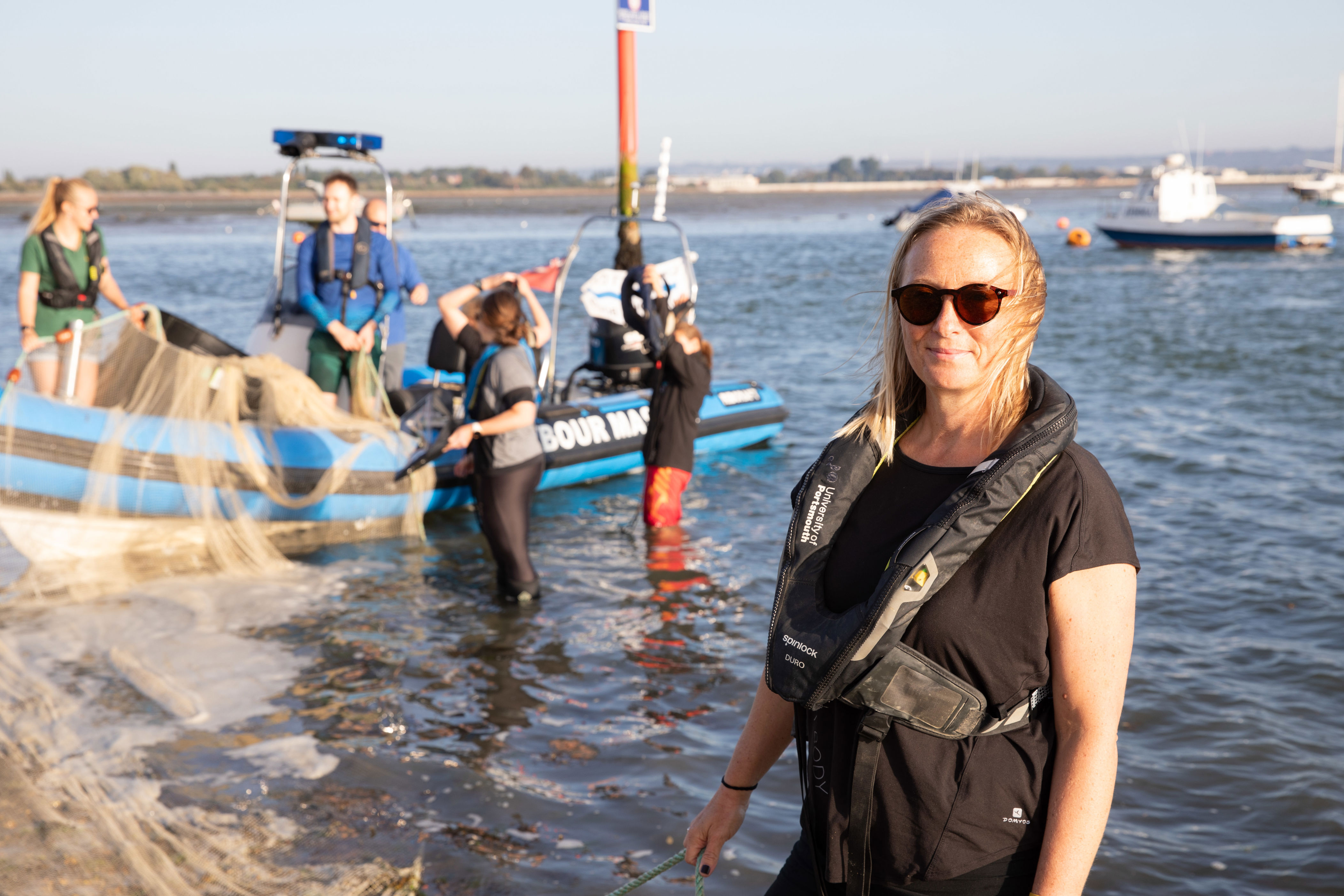
A City Shaped by the Ocean
Portsmouth, a city uniquely positioned as the only island city in the UK, has long been defined by its deep connection to the ocean. From its natural deep-water harbor to its rich maritime history, the city's relationship with the sea is both historical and evolving. Today, Portsmouth is also emerging as a hub for ocean-focused education and research, offering students and researchers unparalleled opportunities to explore and contribute to the future of marine science.
Local Studies with Global Impact
The University of Portsmouth stands at the forefront of this movement, serving as a leading research institution that drives positive change locally and globally. For those passionate about the oceans and their sustainable future, the university provides exceptional facilities and real-world experiences. Students often find themselves involved in research that influences policy and blue economy strategies across the globe, from Africa to Zanzibar.
Leading in Ocean Science Research
Addressing the complex challenges facing marine environments requires expertise from multiple disciplines and collaboration between scientists within the university and across the world. Several research centers in Portsmouth are dedicated to protecting the planet’s seas, including:
- Marine Biology Research Group
- Centre for Blue Governance
- Centre for Enzyme Innovation
- Revolution Plastics Institute
- Institute of Marine Sciences
- Institute of Biological and Biomedical Sciences
At the Centre for Blue Governance, researchers and students work on projects focused on the protection, restoration, and sustainable governance of aquatic environments. With over 70% of the Earth’s surface covered by water, understanding and managing these ecosystems is not only vital but also economically significant.
Understanding the Oceans
The university's international community of interdisciplinary researchers examines issues such as climate change, pollution, biodiversity loss, and the safeguarding of human health. Professor Pierre Failler, Director of the Centre for Blue Governance and UNESCO Chair in Ocean Governance, highlights the city’s long-standing involvement in oceanic studies. “When it was a polytechnic school, people were working in economics and the management of marine resources,” he explains. Over time, the university has built strong networks with policymakers across the globe, including collaborations on the Blue Economy Strategy for Africa and similar initiatives in Asia.
Hands-On Learning Opportunities
For students, experiencing healthy and degraded ocean ecosystems firsthand is crucial. Portsmouth offers both examples along its coastline, allowing students to observe and study these environments directly rather than relying solely on classroom materials.
Research Facilities and Marine Restoration
The Institute of Marine Sciences, located at Langstone Harbour, provides researchers with easy access to the diverse marine life of the Solent, including several designated conservation areas. Here, scientists monitor and test various marine environments and seawater, studying human impacts and marine behavior in these underwater worlds.
Marine restoration and conservation efforts are also central to the university’s mission. The Solent Seascape Project, endorsed by the United Nations, and the Solent Oyster Restoration Project, led by the Blue Marine Foundation, aim to restore critical habitats such as oyster reefs, seagrass meadows, saltmarsh, and bird populations.
Pollution Monitoring and Assessment
Research from the Revolution Plastics Institute has revealed alarming levels of pollution around Britain’s coastline, with microplastics and fibreglass contamination found in shellfish. Additionally, students and researchers have mapped noise pollution along UK coasts and used environmental DNA (eDNA) sampling to track changes in marine biodiversity.
Student Experience and Academic Excellence
Portsmouth is known for its progressive approach to education, with a strong reputation for innovative teaching and globally significant research. The university recently ranked 5th in overall satisfaction for research degrees according to the Postgraduate Research Experience Survey (PRES). It also secured third place among modern UK universities for research power in the Times Higher Education REF rankings.
By integrating research into undergraduate learning, the university ensures students receive a high-quality education that prepares them for future careers. Recent achievements include a student who discovered a 145-million-year-old prehistoric mammal during fieldwork on the Dorset coast.
Where Sport Meets Science
For students interested in combining academic pursuits with outdoor activities, Portsmouth offers unique opportunities. Laura Fantuzzi, a PhD student, monitors pollution and biodiversity in British coastal waters using data collected during the GB Row Challenge, an ocean rowing race event. The university’s coastal location also allows for water-based activities like sailing, rowing, and diving.
“Being on the coast is a major advantage,” says Fantuzzi. “The Institute of Marine Sciences is right on the water, and you can go out and snorkel. The water is surprisingly clear, and there’s life growing on the submarine blocks and hiding among the rocks.”
Exploring Opportunities
For prospective students, the University of Portsmouth offers a range of courses through Clearing. Those interested in applying for 2026 can visit the official website or contact the Clearing line at 023 9284 8073.